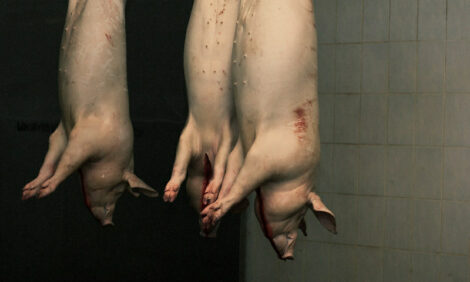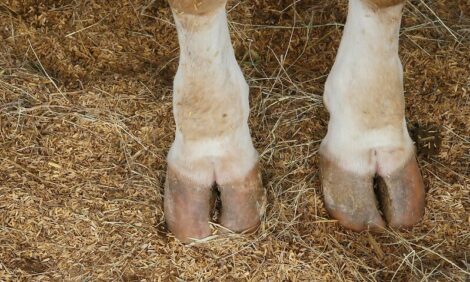



Analysts Project Negative Brazilian Protein Outlook
ANALYSIS - With greatest exposure to high grain prices, Brazilian pork and chicken sectors are expected to feel a greater squeeze this year as opposed to the more grass oriented beef sector.This is according to a new report by market analysts at Fitch Ratings. Their report, 2013 Outlook: Brazil Protein looks at large processor liquidity, supply and demand factors and consumption metrics concluding that protein producers will be heavily challenged throughout 2013.
Viktoria Krane, a director and analyst at Fitch Ratings and co-author of the report said the meat industry is in for a rough twelve months.
"To varying degrees, all Brazilian protein producers are exposed to risks including volatile commodity prices, unfavourable currency fluctuation, potential disease outbreak, and regional export bans," Ms Krane said.
"Competition for market share among branded meat processors will intensify in 2013."
Corn and Soybean Fluctuations
The mid-2012 corn and soybean price hike did not prompt Fitch market revisions last year because grain value flux is integral to the protein business.
However, JBS and Marfrig were already weak when the drought hit last summer and BRF already had high production costs, meaning these companies had to review spending and loans.
The crop story this year is for low supplies and Fitch expects strong demand and weather uncertainties will continue plaguing the pork and poultry feed markets.
In the light of this current volatility, poultry and pork processing companies like BRF, Marfrig and JBS were given negative outlooks. However Minerva, with a revenue source being over 80 per cent beef was predicted to have a ‘stable’ year.
Overall, the report posted a 75 per cent chance of ‘negative outlook’ for the Brazilian protein sector with ‘stable’ corresponding to 25 per cent. In light of this Fitch has warned that hedging is not a perfect solution to grain volatility.
Consumption Reaches Saturation
As the world’s largest exporter of chicken, the Brazilian meat export picture has global significance. This is mirrored by chicken consumption being among the highest in the world following a national economic boom.
Taking effect over the last three years, the upturn has caused protein consumption to rise across the board in 2010 and 2011. In 2010 alone, a 16 per cent chicken and 6 per cent pork consumption increase was noted.
This movement means that since 2010, more chicken and beef has been consumed in Brazil than the US per head due to beef being marred in the US by high prices and maligned as a fatty meat.
Consumption growth is expected to plateau as consumer demand reaches saturation its point this year. Any consumer migration to beef as pork and chicken experience a turbulent 2013 is not expected due to beef being, on average, 2-2.5 times more expensive than chicken and 1.5-2 times more than pork.
Export Outlook
Of all Brazilian meat exports 57 per cent is chicken with beef and pork accounting for 36 and 11 per cent respectively.
Chicken exports have been driven by Middle Eastern, Hong Kong and Chinese consumption growth.
China markets- now reopened to pork- will receive a lot of Brazilian trade following a large pork export decline in the last quarter of 2012, Fitch projected.
Unlike beef values, which Fitch has said are likely to gradually decline, pork and chicken prices are projected to remain stable, vital to the sectors against a backdrop of high inputs.
Meanwhile the beef picture will face a weakening Brazilian Real (R$) and an increase in cheap cattle supplies so Brazilian beef farmers are expected to see all time high margins from 2012 being eroded.
The Fitch report caveated that the US beef supply picture will provide a buffer zone for this decrease as less US beef is exported due to herd depletion after the summer drought.
The US is to remain a major world player however with a world beef and veal export share of 12 per cent.







